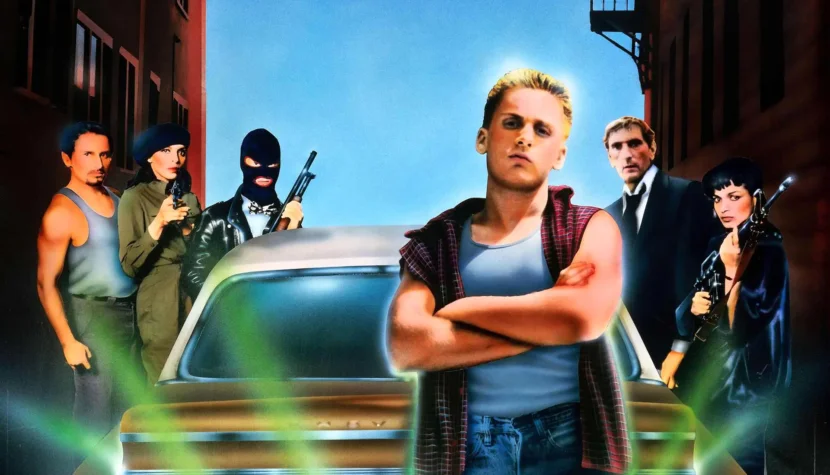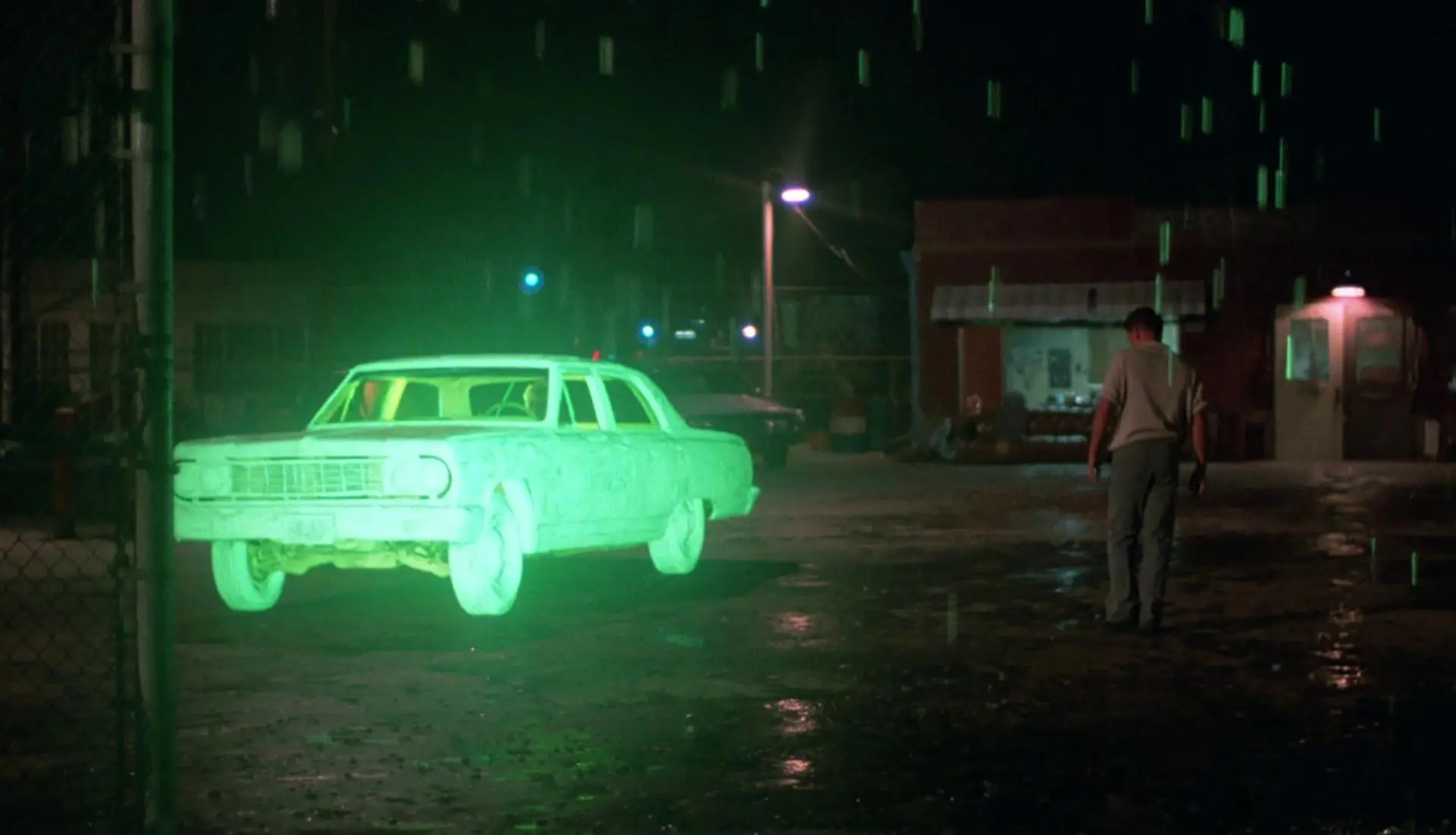REPO MAN. A Satire on the Rules of Modern Science Fiction… and Life

A successful satire inspired by Tarantino’s style, though executed less effectively on a $1.5 million budget, Alex Cox’s Repo Man (sometimes more widely recognized under its original title) serves as a manifesto of 1980s generational anxieties rooted in the counterculture of the prior decade. Born to hippie parents, the youth in this story struggle to navigate a ruthless, capitalist reality. Their rebellion, experimentation, and even dreams of finding extraterrestrials—who, as it happens, do appear in the film—underscore their discontent. Or perhaps those aren’t aliens at all but a lethal human invention, a time machine, a spacecraft, or even a divine gift? Ultimately, the focus is not so much on science but on the chance, the escape route, the metaphorical gateway through which one can flee a grim and hopeless reality. As such, Repo Man is less science fiction and more social fiction.
The distinction between social and science fiction matters less here because the fantastic element, though central to the plot, doesn’t dominate formally. It revolves around a mysterious car, which appears in the very first scene, set in a desolate area. A Chevrolet Malibu is pulled over by a motorcycle cop. The driver is human, but something non-human and deadly lurks in the trunk. When the officer opens it, his body literally explodes. This sets the stage for Repo Man, a title that hardly suggests any kind of sci-fi. Yet the main plot is a chase for this car with its enigmatic cargo, for which the U.S. government is willing to pay $20,000 to repo men from a shabby, homeless-filled city. Here, we meet the two protagonists—Bud (Harry Dean Stanton) and Otto (Emilio Estevez). Bud, a seasoned and cynical repo man, specializes in reclaiming vehicles from debtors. Otto, his apprentice, is a rebellious and aimless young man who has lost his previous job and must do something to avoid the fate of his criminal peers. He learns the trade, but his journey seems to lead to the same bitterness as Bud’s—until the Malibu, with its trunk brimming with mysterious energy, enters Otto’s life.

This car and its mysterious contents serve as the film’s central metaphor, which viewers must grasp by immersing themselves in the action. The film is peculiar, sometimes uneven, occasionally pretentiously humorous, and at times brilliantly abstract and exploitative. Many years later, Tarantino adopted similar narrative techniques and humor, albeit with superior editing, cinematography, and special effects. Even the finale boasts a twist that wouldn’t be out of place in Inglourious Basterds. But Repo Man doesn’t aim to reveal what’s in the trunk. Throughout the movie, various theories are floated: stolen alien corpses from a secret military base, a deadly radiation emitter, a time machine, a secret weapon, a divine artifact? It’s clear that director and screenwriter Alex Cox wants to suggest that the trunk’s contents are not inherently deadly—it depends on who opens it and who they aspire to be. If someone lacks ambition, lives only in the present, and accepts the surrounding moral decay, they will be consumed, literally burned alive. But if they dare to resist and dream, they’ll be rewarded. The car might even accept them as its new driver, rendering the trunk’s contents irrelevant. Nevertheless, the trunk’s scenes are visually striking, introducing elements of fantastical horror imbued with a rustic, ironic vibe amplified by a punk-meets-Latin-country soundtrack curated by none other than Iggy Pop.

By turning the principles of sci-fi on their head, Repo Man merges the genre with a modern Western that critiques American society harshly. There’s no place in its world to fulfill dreams. It’s all filth, poverty, crime—dead bodies literally litter the streets, occasionally removed by cleanup crews in white hazmat suits. For those who still possess anything, repo men “steal” their cars, further reducing their wealth until they, too, end up on the streets. There’s no justice in this world, only violence, so deeply ingrained that survival requires adopting the same methods.
And then there’s the car with its hidden power. Everyone in the film chases it, including a government agency. Yet the ones who get a real chance are a seemingly clueless mechanic and the socially half-derailed Otto. It appears that someone from distant space wants to show Earth’s corrupted society just how unfair human notions of social divisions are.

